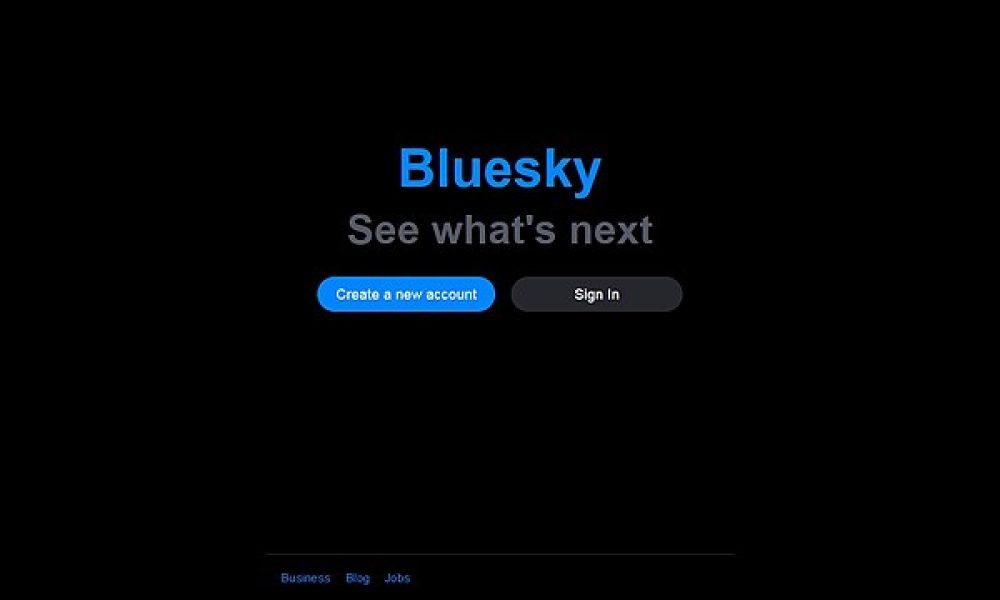Bluesky, a social media platform launched in beta in late 2022, has rapidly gained traction as a popular alternative to Twitter. Its rise can be attributed to a combination of innovative features, its decentralised ethos and increasing dissatisfaction with Twitter under Elon Musk’s leadership. In this blog post, RMG explores why Bluesky is becoming a significant competitor in the social media landscape.
Decentralisation and User Control
One of Bluesky’s most distinguishing features is its decentralised nature, powered by the Authenticated Transfer (AT) Protocol. Unlike traditional social media platforms like Twitter, which operate on centralised servers and are controlled by a single entity, Bluesky’s infrastructure allows users to have greater ownership of their data and online presence. This means users can potentially migrate their profiles, content and follower relationships between different platforms that adopt the AT Protocol.
This approach aligns with the broader Web3 movement, which prioritises user sovereignty and a move away from the ever-expanding tech monopolies. Many users are drawn to Bluesky as it promises a future where individuals have more control over how they interact online without being subject to the whims of corporate decision-making.
Community-Oriented and Ad-Free Model
Bluesky has embraced a community-centric approach, fostering an intimate and cooperative user experience. In its early stages, the platform limited access to invite-only sign-ups, which created an exclusivity factor but also allowed the community to grow organically and intentionally.
Unlike Twitter, Bluesky currently operates without ads. Users have appreciated this clean, intrusive experience, which stands in stark contrast to Twitter’s ad-saturated feed. The absence of algorithmically prioritised content has further resonated with users seeking a more authentic, chronological timeline.
Frustrations with Twitter’s Evolution
Bluesky’s rise is closely tied to dissatisfaction with Twitter, particularly since its acquisition by Elon Musk in 2022. Musk’s tenure has been marked by controversial changes, including the implementation of a paid verification system, reduced content moderation and erratic policy shifts. Many users, especially those who had relied on Twitter for journalism, activism and niche communities, have felt alienated by the platform’s growing emphasis on monetisation and its lax approach to addressing harmful content.
Moreover, technical issues and reduced trust in Twitter’s stability have driven many users to explore alternatives like Bluesky, Mastodon and Threads. Among these, Bluesky has stood out for its intuitive design and familiarity, offering a user experience that closely mirrors Twitter’s functionality while improving upon it. As a highly regarded UK PR agency, Rose Media is understandably impressed by Bluesky’s ability to remove many of Twitter’s negatives while retaining all of its positives.
A Familiar Yet Fresh Interface
Bluesky’s design borrows heavily from the simplicity and usability of Twitter, making it easy for new users to adapt. Features such as retweets, likes and threaded conversations are present, but the platform avoids many of Twitter’s pain points, such as algorithmic manipulation and paid prioritisation of content.
At the same time, Bluesky incorporates unique elements, including customisable algorithms that allow users to tailor their content discovery. This empowers users to define their own experience, enhancing the feeling of agency and personalisation.
Support from Influential Early Adopters
The platform has also benefited from endorsements by influential figures, journalists and tech enthusiasts. These early adopters have helped Bluesky establish credibility and attract a diverse user base that values thoughtful discussions and innovative ideas.
Is the future going to be blue, blue and more blue?
Bluesky’s emergence as a viable Twitter alternative is driven by its decentralised model, user-first design and a growing disenchantment with Twitter’s trajectory. While still in its early stages, Bluesky has demonstrated the potential to redefine social media, focusing on transparency, user control and community integrity. As it continues to develop, Bluesky may well position itself as a leading platform in the evolving social media ecosystem.
If you’d like to know more about Bluesky in particular and the world of social media in general, why not contact our team today? Here at Rose Media Group, we have the knowledge and experience to help your brands reach out to a wider audience via a number of popular platforms. We can be contacted at hello@rosemediagroup.co.uk or on 01444 241 341. We’re looking forward to hearing from you soon.










